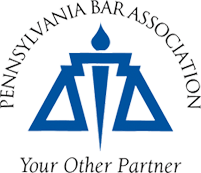After 13 months and 55,000 miles as pro bono coordinator for the Pennsylvania Bar Association, I am pleased to report on some of the positive changes in the civil legal aid landscape of Pennsylvania. The passage of the Access to Justice Act and other funding successes have allowed legal services programs to meet the challenges of significant census driven changes in federal funding allocations. They have been able to shift other support around the state instead of planning staff layoffs. Strong recruitment efforts, such as the recent pro bono conferences in Scranton and Erie, have helped counties with no organized pro bono support develop exciting efforts to bring bar members and legal service providers together to provide civil legal aid to the poor. Wyoming and Sullivan counties went from having no visible pro bono support to having 100 percent participation among the 22 lawyers practicing in the joint judicial district. Visit the PBA Pro Bono Home Page at www.pabar.org/probonohome.asp to view the Pro Bono Scroll of Honor and see the names of more than 2000 Pennsylvania attorneys who were cited by local bars and civil legal aid programs for their work on behalf of the poor. The PBA also is receiving praise for its pro bono leadership and for merging the Delivery of Legal Services for the Needy Task Force II into the Equal Justice for the Poor Committee.
Much more work still needs to be done to achieve the PBA�s pro bono goals. Gains in pro bono involvement in many regions were negated by declines in pro bono activity elsewhere. Despite the unprecedented cohesion of the bar and legal services programs in securing the passage of the Access to Justice Act, there are many areas of the state where tensions between the bar and civil legal aid providers interfere with the delivery of legal services to the poor. PBA leadership, in tandem with significant efforts by Pennsylvania Legal Services, has helped local programs move toward resolving some of the existing tensions. Although the PBA has been very vocal and visible in promoting pro bono activity among its members, many Pennsylvania lawyers still have a negative view of organized pro bono efforts. A traveling road show of continuing legal education presentations on the ethics of pro bono works to challenge this negative view of civil legal aid.
A look at the four subcommittees of the revitalized Equal Justice for the Poor Committee, including Local Support, Development, Pro Bono Conference and Law Schools, shows the direction of the PBA�s pro bono efforts in the months to come. The Local Support Subcommittee is dedicated to increasing the number of lawyers involved in pro bono activity. Since each county has a unique pro bono structure and approach, the work here requires intensive and extensive local contact. The effort to develop an organized pro bono effort in Wayne County is instructive. Lawyers from the county were invited to attend a free pro bono CLE under the auspices of an IOLTA funded conference held in Scranton by Lackawanna Pro Bono, Inc. PBA support of that conference, including securing Pennsylvania Supreme Court Justice Michael Eakin as a keynote speaker and actively promoting the program regionally, helped to bring six Wayne County attorneys to the day long event. Follow-up meetings in Wayne County were held and attorneys there are starting to take cases through North Penn Legal Services, the local legal service provider.
The Development Subcommittee is charged with seeking additional funding streams for civil legal aid. Despite the passage of the Access to Justice Act, much still needs to be done in the area of funding, beginning with efforts to eliminate the sunset provisions of the act. Other funding concerns abound, including: the significant redirection of federal funding with the new poverty census figures; the U. S. Supreme Court consideration of legal challenges to IOLTA programs; and the potential impact on state funding by the growing budget crisis. There will be a new round of IOLTA pro bono grants this spring, and the PBA is working closely with potential applicants, as well as previous grant winners, to make sure that the funds allocated significantly impact the field.
The Pro Bono Conference Subcommittee is working with the Philadelphia Bar Association to explore options for a joint pro bono conference as part of the PBA annual meeting in Philadelphia next year. Philadelphia holds a Public Interest Law Day on a regular basis around the time of the annual meeting and the possibility of bringing that program together with the PBA Pro Bono Conference is being actively examined.
The Law School Subcommittee has a wide range of concerns, including looking at loan forgiveness and debt reduction as means of improving the ability of new lawyers to provide civil legal aid. The subcommittee also is looking at new ways law students can be inculcated with the ethic of pro bono so that they join the profession ready to serve.
Thanks to the strong support of the PBA leadership, pro bono in Pennsylvania is moving in a positive direction.
| 